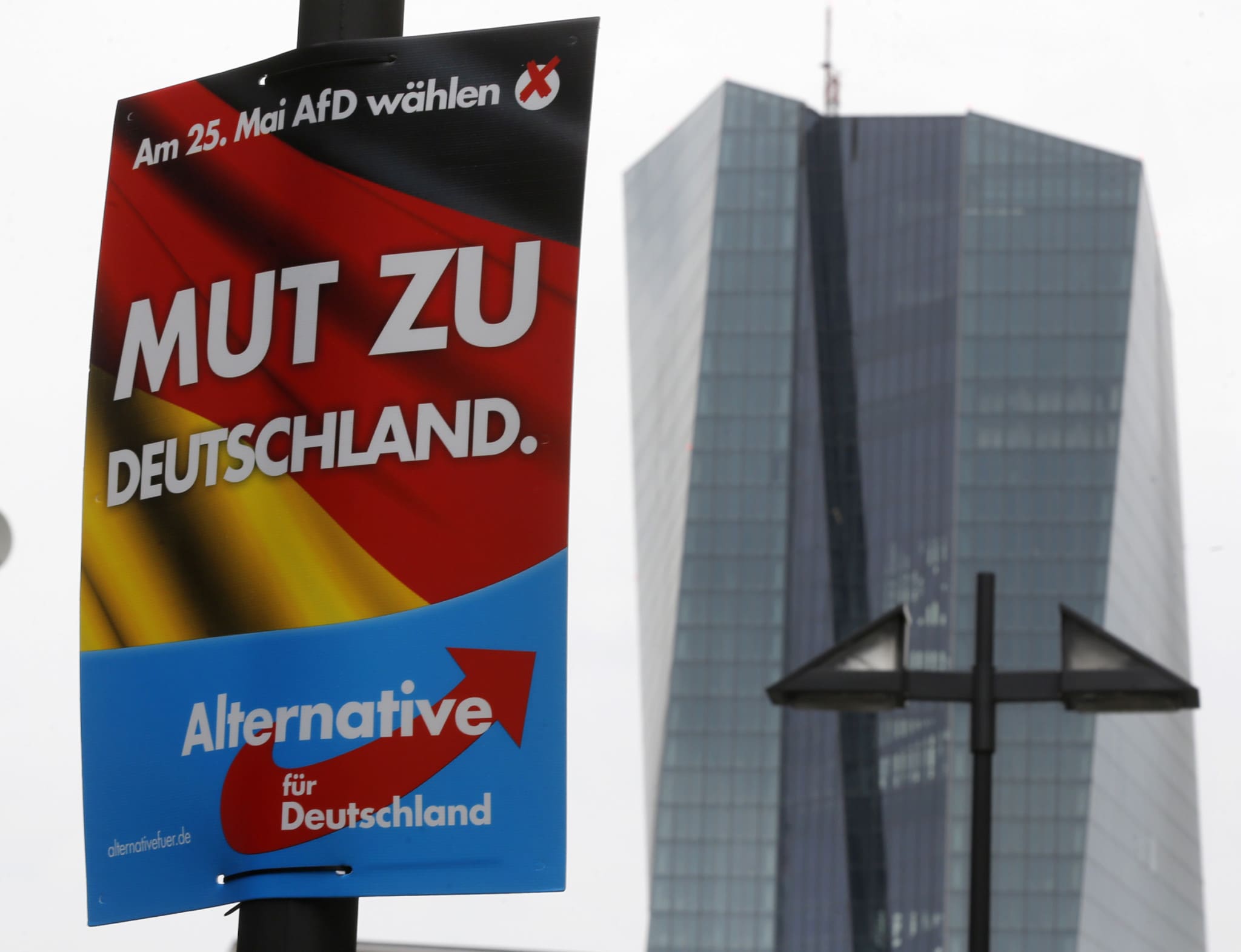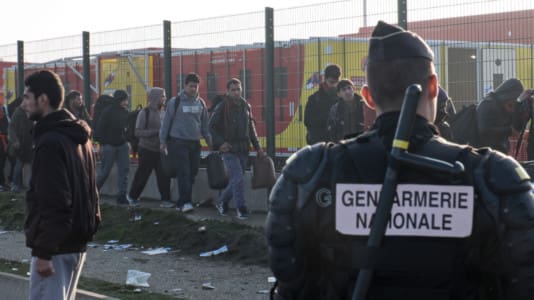The migrant mayhem seen in June, although only a thin slice of the overall picture, shows why Alternative for Germany (AfD) is surging in popularity. The scale of the events, and the growing fatigue of the German population against what appears to be an endless stream of newcomers, is hard for even mainstream media outlets to ignore.
These same outlets, while primarily staffed with left-wing journalists who promote the country’s left-wing parties, can no longer disregard the problems wrought by multiculturalism, and their coverage showcases what Germans already know.
At the same time, these same publications are fighting what appears to be a concerted war against the surging AfD, writing polemical pieces about how the party represents a threat to democracy.
Clan battles in June dominate national headlines
Der Spiegel, for instance, is one of the most powerful pro-Atlanticist publications in Germany, yet, its video on the ongoing ethnic clan battles in the Ruhr valley of Germany this June went viral. The reason? The German public is both captivated and concerned about the country’s growing multiculturalism, and the ongoing sagas with the clans, including mass brawls, shootings and large-scale museum heists, have often led to feverish coverage. Der Spiegel, as much as it might want to sweep the issue under the rug, realizes the click-and-view potential of these clans.
That is why its latest mini-documentary on the clan battles in the Ruhr Valley had over a million hits within 24 hours — no small feat for Germany’s news market. In a week, it had nearly 2 million views. Spiegel was not the only publication covering these battles, and Germans, who have seen this same story play out for years, especially during a time when their own standard of living is dropping, may be tired of the same narrative — one the AfD has warned against for a while now.
The Spiegel narrator explains that the police are overwhelmed as Lebanese and Syrian clans continue to battle in the city — with police resources stretched thin:
“(The German city of) Essen on Saturday night. The police must mobilize all reserves in order not to fall behind again. In the meantime, the monopoly on the use of force lay with two Arab clans. The scene of the feud is a Syrian restaurant in a prime downtown location. On Friday night, the inn was targeted by hundreds of men, as this video shows. Although the police are on-site, dozens of attackers break in and destroy the furniture. The Essen Chaos Night culminates in a mass brawl between Syrians and Lebanese. One day after the robbery, the restaurant is well frequented again and protected by two police vans.”
During the brawl, 80 men were taken into custody, and police confiscated baseball bats, knives and other weapons. Der Spiegel describes how the feud has been ongoing, with Lebanese clan members attacking Syrians days before in a neighboring city. Those events were filmed and widely distributed in German media and social media, showing the Lebanese and Syrian brawlers seemingly unconcerned with a police presence as they battled in the streets.
As Süddeutsche Zeitung notes, there are more clans in the city of Essen and Germany’s largest state by population, North Rhine-Westphalia, than anywhere else in Germany:
According to the LKA, there are more than 100 extended families in NRW (North Rhine-Westphalia), some of which form such criminal structures. Most have Lebanese or Turkish roots. In 2021, the police registered 3,600 suspects from the milieu, who together committed almost 5,500 crimes. Hardly anywhere else in Germany have so many so-called clans settled in the past years and decades as in NRW, much more than in the other focal points of Berlin, Bremen or Lower Saxony…
In Essen, for example, members of several Lebanese extended families have dominated the scene for a long time. Experts warned several years ago that family reunification from their homeland and immigration from other parts of Germany would quickly increase the number of Syrian clans — which could lead to considerable tension. The number of Syrians in Essen has risen rapidly since the civil war in their home country, from just 500 in 2010 to almost 16,000.
German swimming season open to mass brawls and “macho culture”
Germany’s public swimming pools are practically a national institution, with many Germans cherishing memories of their youth spent at these establishments. They are, in principle, supposed to be a place safe for families and the elderly. However, an exploding foreign population is not only making these establishments more crowded but also more dangerous, with the mainstream German press routinely pointing out that foreign males constitute the vast majority of cases troubling the public pool system.
Remix News has long reported on this trend, including mass brawls, sexual assaults and attacks on police, security officials and even lifeguards working at the pools.
Just last year, Remix News covered how the president of the Federal Association of German Swimming Champions (BDS), Peter Harzheim, said he can no longer recommend that families visit such facilities on weekends. Harzheim claimed he would be “acting irresponsibly” if he attended an outdoor pool with his own three grandchildren due to violence and assaults, which the Remix News article details.
The beginning of this year’s summer is no different, with the latest incident just days ago. Again, the video on this topic, from Welt, was a “ratings” success, with nearly half a million views.
The report details how the entire Columbiadamm swimming pool in the multicultural neighborhood of Neukölln, Berlin, was closed down due to over 40 warring youth. Welt lays the blame squarely at the feet of “macho culture” from immigrant youth. In Pankow, a swimming pool had to be shut down twice in one week due to mass brawls between young people.
However, the brawls in Berlin were far from isolated incidents. June has seen sexual and physical assaults at swimming pools across the country, including a case where seven different girls were sexually assaulted all at the same pool by different groups of men, including Syrians.
In the German city of Celle, 20 “rampaging youth” attacked swimmers, sexually assaulting them, including beating one female who rejected their advances. When lifeguards attempted to stop them, they threatened them as well. As a result, the entire swimming pool was shut down.
Just seven days ago, Germany’s Bild newspaper, the best-selling newspaper in Germany, featured an article with the headline, “Germany, your bad swimming pools” with the subheadline: “Can’t we just go to the outdoor pool in peace?”
The paper describes a mass brawl involving 40 youths, which resulted in one lifeguard suffering a concussion, even though he had nothing to do with the fight. He said the incident started with a small fight, but family members of the participants all began joining in until it was a mass brawl.
“It was the worst day of my life! I was lying behind the hedge, 20 meters from the entrance, when suddenly it started,” said the lifeguard. The Bild also describes another brawl in Berlin, in which a Lebanese youth refused to take off his street shoes in the swimming pool. The feud escalated until 30 young people fought four security officials at the swimming pool at Am Schloßpark. According to Welt, one of those injured was stabbed with a knife, and a total of five people were injured.
Another mass brawl in Steinrausch in the German state of Saarland was also posted on Twitter.
Germans notice these trends, year after year, and they have cast a shadow on what should be a peaceful area of respite. As Bild notes: “On hot summer days, the outdoor pool is considered the most important relaxation oasis in Germany. But meanwhile, our swimming pools have become “bad” pools! Again and again, there are mass brawls — grown men beating each other wildly.”
Gangs plague Hamburg
While German politicians claim Germany is going “brown” due to its support for the AfD, this same political class cannot stop Germans from being mortally concerned that their way of life and their security is at stake in the unfolding saga around immigration.
Nearly every city has a group or groups of young migrants who terrorize the local citizens, as Remix News has documented in cities from north to south, and many publications are using that exact word: terror.
For example, Focus magazine writes that a gang called the “315ers” is “terrorizing” downtown Hamburg, including assaults, stabbings, and robberies, with sometimes as many as a hundred gang members involved. The gang is mostly made up of young Afghan, Pakistani and Iranian teens, as well as Syrians, all housed in local refugee accommodations.
Police have arrested members, recovered weapons, and noted that many of these members fight within the gang, with their mostly German girlfriends recording the fights and offering their encouragement.
Banning knives to fix migrant crime?
It has long been reported that Germany suffers approximately 50 knife attacks a day, with the vast majority of suspects foreigners. June has been no different, but many publications are increasingly addressing the “elephant in the room.” For example, Berliner Zeitung wrote this month that Germany’s 16 state interior ministers want to address growing migrant crime, with the article specifically mentioning the migrant who stabbed a young German couple to death on a regional train in January earlier this year.
The question of the perpetrators, however, is reluctant to be asked and is preferred to be ignored. The interior ministers are talking about the proverbial elephant, a fact that everyone knows but nobody wants to talk about.
The fact is what the crime statistics show. Let’s take Berlin as an example. In 2022, the police registered a total of 3,317 “knife attacks” here. 2,428 suspects were found, of whom 1,234 had foreign nationality, i.e. more than half.
Even with half of the knife attacks in Berlin listed as having been committed by foreigners, as Remix News has reported in the past, many of the “Germans” arrested for crimes are actually foreign-born but are listed as “German” because they obtained German citizenship. This skews the statistics significantly. For example, one official noted that approximately 75 percent of criminal clan members in Berlin have German citizenship, and every time they stab or assault someone, federal authorities list the crime as being committed by a “German.”
The Berliner Zeitung notes that Germany’s federal interior ministry has proposed banning knives on trains, but points out the absurdity of the proposal, noting that controlling who has a knife on a train is a nearly impossible task. At the same time, it may guarantee that only criminals and those seeking to do violence will have the knives in the end.
In another testament to why Germans may be turning to the AfD, the Berliner Zeitung writes: “The interior ministers have a duty to protect the population from brute force. This includes border protection. But despite all the scandals and human catastrophes, that still doesn’t exist.”
Will the AfD continue to grow?
The AfD has been the only serious party promoting a halt to mass immigration. The “center-right” CDU, which introduced open borders under former Chancellor Angela Merkel, has zero credibility on the issue. The other parties are looking to dramatically increase immigration numbers, with many of them promoting figures as high as 500,000 a year while also racing to naturalize foreigners just in time for them to vote in the next round of national elections.
Meanwhile, the Alternative for Germany (AfD) has seen its popularity surge over the last year, nearly doubling its support, with many polls showing it has the backing of between 19 and 21 percent of German voters. There is no doubt that soaring inflation, the war in Ukraine, and Germany’s ongoing deindustrialization have played a significant role in the AfD’s growing support base. However, immigration and the problems it has brought to Germany have been central to AfD’s story up until now, and if anything, this story is set to become even more of a central theme to Germany in the coming years.





